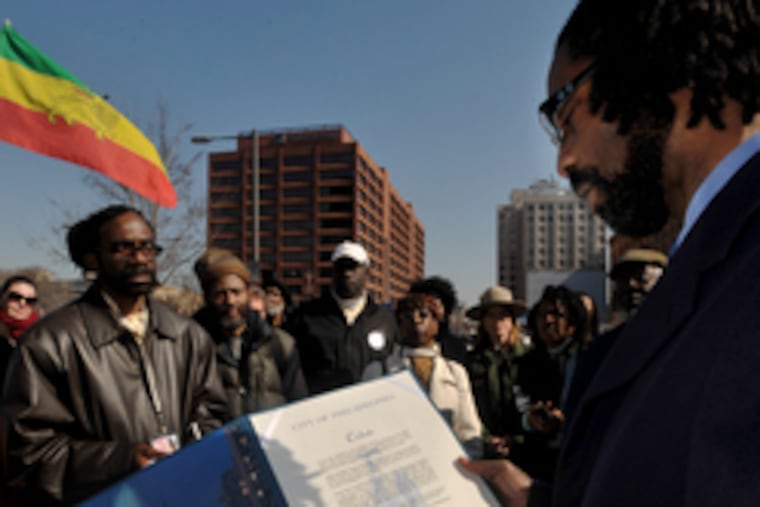City honors Washington's slave - and 'power of archaeology'
Oney Judge, who fled her captivity, died a free woman.

Oney Judge died 160 years ago yesterday, 52 years after she cast off her bonds, 52 years after fleeing Philadelphia to escape the man and woman who owned her and who wanted to give her away as a wedding bauble - George and Martha Washington.
Oney Judge was about 75 when she died in New Hampshire on Feb. 25, 1848. Her husband was dead. Her three children were dead. But she died a free woman - if still legally a fugitive - one who had defied the first president of the United States.
Mayor Nutter recognized her tenacity by issuing an official city tribute in honor of the anniversary, and Councilwoman Blondell Reynolds Brown, with Council President Anna C. Verna, issued a similar citation in the name of City Council.
A group of activists and citizens gathered yesterday afternoon on Independence Mall to read the official proclamations and mark the occasion in front of the Liberty Bell Center, site of the first presidential mansion, where the enslaved Judge lived as Martha Washington's personal servant.
"She said, 'No!' " Michael Coard exclaimed to dozens of people gathered at Sixth and Market Streets. "What Oney Judge did was absolutely courageous."
Cheryl J. LaRoche, an archaeologist who worked at the site of the President's House excavation last year, said that Judge, who was one of nine slaves Washington held at the house during the 1790s, "defies the very first president of the United States; she defies slavery, and she defies the constitution at the inception of this country."
The archaeological excavation captured the public imagination - more than 300,000 visited the dig in the spring and summer - and uncovered evocative evidence of Washington and his slaves, LaRoche said.
"This is the power of archaeology," she said. "African American history is not always in the books. African American history is not always in the documents. But it is often in the ground."
Independent historian Edward Lawler Jr., whose research, published in 2001, established the location of the mansion and the presence of an unacknowledged slave quarters at the doorstep of the then-proposed Liberty Bell Center, called Judge heroic.
"It's a great day to have Oney Judge honored," Lawler said. "And I'd like to see her honored on this day every year."
Congress has directed the National Park Service to create a fitting memorial to the nation's first executive mansion and, particularly, to the nine enslaved Africans who lived there.
Plans for the memorial were announced in December.
Find out more about the site of the President's House and the people who lived there at http://go.philly.com/presidentshouseEndText
.